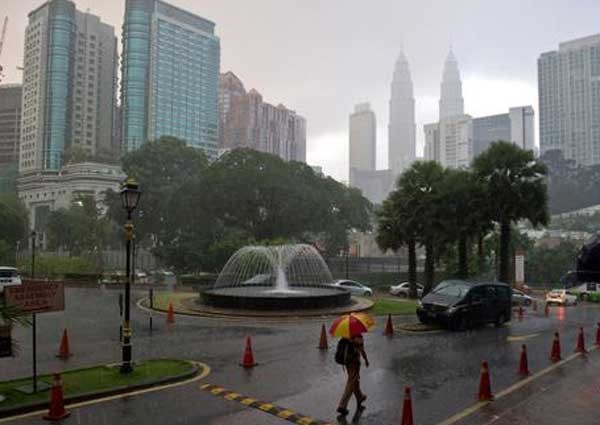Malaysia growth to slow to 3.6% in 2016: HSBC

Kuala Lumpur - Malaysia's economy is forecast to grow 3.6 per cent this year as its growth engines are stuttering while Putrajaya's policy responses will be limited owing to high levels of public and private indebtedness, according to global banking group HSBC.
Its growth projection would mark Malaysia's weakest in seven years and appears far more bearish than the official 4-5 per cent forecast, and substantially lower than last year's estimated 4.5-5 per cent expansion.
Putrajaya is scheduled to announce a revised budget next week as global oil prices have slumped to below US$30 (S$43) a barrel compared to the budget assumption of US$48 oil.
Some spending cuts will be necessary to offset lower petroleum revenues, but Putrajaya has kept its cards close to its chest although Minister in the Prime Minister's Department Wahid Omar indicated on Tuesday a greater need to optimise development and operating expenditure given the anticipated budget shortfall.
In any event, normally reliable engines of growth are showing signs of being worn thin, HSBC said in an economic and foreign exchange (FX) outlook on Tuesday.
Headwinds from the collapse in oil prices aside, export growth has also been disappointing because China's softer economy means less demand for imports, including from Malaysia, which will in turn have a bearing on the current account.
Domestic demand - one of the strongest engines of growth since Malaysia's last recession in 2009 when the economy contracted 1.5 per cent on the back of the global financial crisis - is in a slump, hit by a goods and services tax and the feeble ringgit.
HSBC Asean economist Lim Su Sian said cheap oil has kept inflation low in most countries, boosting consumption, but not in Malaysia where consumer and business sentiments are at 2008-2009 lows.
Ms Lim sees consumption growth slowing to less than 3 per cent on continued external pressures from an estimated 5-plus per cent last year.
Consumption growth has been declining after tighter lending guidelines were imposed to reduce soaring household debt, now nearly 90 per cent of gross domestic product (GDP) or the highest in the region.
Corporate indebtedness at nearly 100 per cent is also an issue as is the country's sticky fiscal deficit which is targeted to be reduced to 3.1 per cent this year.
"The central bank and government are constrained in policy responses to deal with the economic slowdown," Ms Lim observed, noting Bank Negara Malaysia (BNM), the central bank, would also find it hard to cut interest rates for some time because of the weak ringgit.
HSBC has projected a year-end rate of 4.4 to the US dollar - about its current level - although its head of global emerging market FX research Paul Mackel does not discount further depreciation since it is "especially sensitive to external drivers" - viewed currently as China and the yuan but in the longer term, commodity prices.
Mr Mackel said there is now more debate about the ringgit compared to last year.
"There's certainly some fans of the ringgit - they say it's cheap," he remarked, adding he does not disagree with BNM governor Zeti Akhtar Aziz's view that it is fundamentally undervalued. "I do sympathise with her thinking."
Internal factors also have some bearing on the ringgit, and one "signpost" the forex market would be keeping an eye out for, he said, is the individual named to succeed Ms Zeti who is retiring in April.

This article was first published on January 20, 2016.
Get The Business Times for more stories.